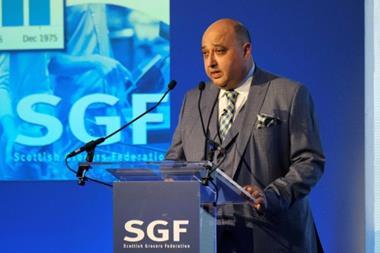Survey exposes pain of unexpected staff absences

A new survey of retail managers has exposed the “corrosive” impact of unplanned staff absences on stores.
In the UK, 74% of retailers claim they are understaffed more than 25% of the time
ALREADY HAVE A REGISTERED USER ACCOUNT? PLEASE LOG IN HERE
To read the full story join the ConvenienceStore.co.uk community today!
Registration is quick and easy and provides access to:
- Unlimited ConvenienceStore.co.uk articles
- Our great range of newsletters
- Content you’ve saved for later via the ‘my library’ feature
And much more…

























